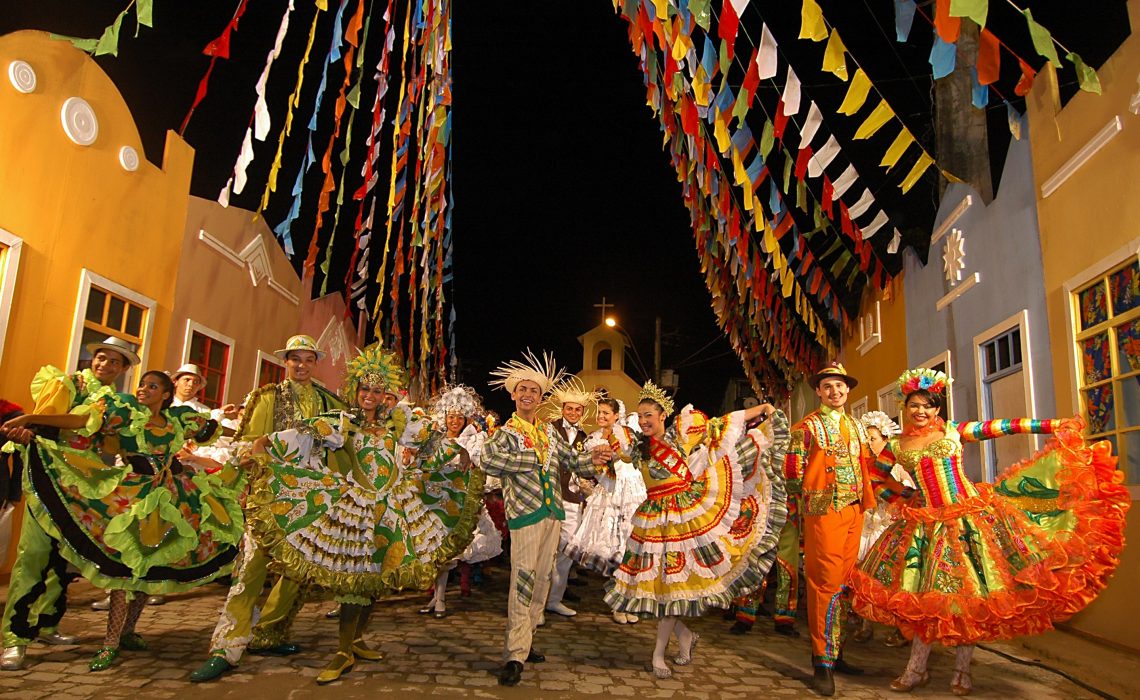
You might also like:
SÃO PAULO, BRAZIL – Second only to Carnival in the number of spectators and participants, the Festas Juninas (June Festivals) throughout Brazil gather hundreds of thousands to celebrate Brazilian folklore and popular culture. Named after Catholic saint, São João, the most popular celebrations are found in the Northeastern part of the country.
Dubbed as one of the two ‘largest São Jõao in the world’ the celebration in the small town of Caruaru, Pernambuco last throughout the month of June, with attractions occurring almost every day.
City officials expect more than 2.5 million visitors to pass through the town this month, attracted by large paper mache figures, men on wooden stilts and the traditional mock wedding.
Tied for first place in size, the celebrations in Campina Grande, Paraiba, also attracts thousands this month, looking to eat corn-based pastries, drink hot wine with spices and dance Brazilian-style square dance, known as quadrilha. According to city officials more than 200,000 people gather around the town’s main square during weekends in June to celebrate.
“São João brings back childhood memories mainly because we played in the streets, in the public space. And this is a rare thing nowadays,” 36-year-old architect Swani Lima told government a news agency during the first weekend festivities.
Men in checkered shirts, painted-on mustaches and straw hats join women in long colorful dresses and pigtails to dance and later to ‘witness’ a mock wedding which usually includes an ‘angry’ rifle-bearing father of the bride and a ‘scared’ groom.
The celebrations are so popular and so important to the economy of smaller Brazilian towns that congressional representatives usually take days off from the federal legislature to accompany their constituents in the festivities.
Other popular and nationally famous São João celebrations occur in São Luis (Maranhão), Salvador (Bahia), and Aracaju (Sergipe). In Rio de Janeiro one of the most popular locations to celebrate is in the Feira de São Cristovão at the Centro Municipal Luiz Gonzaga de Tradições Nordestinas.
Sоurсе: riotimesonline.com
